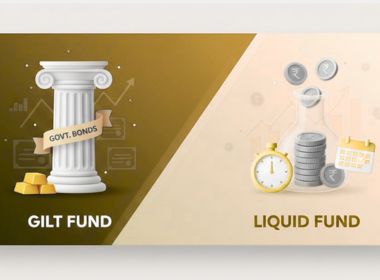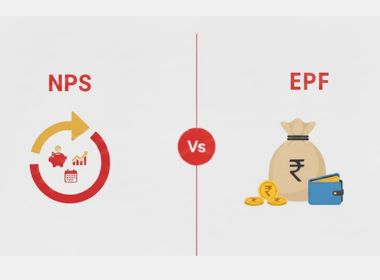Search Suggestions
- Gold Loan
- Money Transfer
- Mutual Funds

Simple Interest: Meaning, Formula & Use in Personal and Gold Loans
When it comes to borrowing money, understanding the type of interest applied to your loan is essential. One of the most commonly used methods is simple interest. It’s straightforward, easy to calculate, and helps you stay informed about how much you owe. In this blog, we’ll break down the simple interest meaning, explain the simple interest formula, and explore its application loans.
Table of Content
- Simple Interest Meaning
- Simple Interest Formula
- How Simple Interest Is Calculated
- How Simple Interest Works
- Simple Interest in Loan Application
Simple Interest Meaning
Simple interest is the cost you pay for borrowing money, calculated only on the original principal amount throughout the loan tenure. Unlike compound interest, it doesn’t accumulate or compound over time. This makes it a transparent and predictable method of interest calculation. In simpler terms, if you borrow money with simple interest, the interest amount remains constant over the loan period and does not change with time.
Simple Interest Formula
The simple interest formula is:
SI = (P × R × T) / 100
Where:
SI = Simple Interest
P = Principal amount (the initial amount borrowed or invested)
R = Rate of interest per annum (%)
T = Time period in years
This formula provides a clear estimate of the interest you’ll pay over the life of the loan.
How Simple Interest Is Calculated?
To understand how simple interest is calculated, let’s look at an example:
Suppose you take a personal loan of ₹5,00,000 at an interest rate of 10% per annum for 2 years.
Using the formula:
SI = (5,00,000 × 10 × 2) / 100 = ₹1,00,000
Therefore, the total interest payable is ₹1,00,000 over a period of 2 years. You will repay a total of ₹6,00,000 (Principal + Interest).
This kind of calculation makes it easy to plan your finances and know exactly how much you owe.
How Simple Interest Works?
Now that we understand the formula, let’s explore how simple interest works. When you take a loan with simple interest:
- The interest is calculated only on the original amount borrowed (principal).
- It does not change based on the interest already accrued.
- It provides consistency in repayments, especially helpful for short-term loans.
This makes it particularly beneficial for borrowers who want predictable EMIs or a clear repayment schedule.
Simple Interest in Loan Application
Let’s see how simple interest in loans is commonly applied, especially in personal loans and gold loans.
Simple Interest in Personal Loans
A personal loan is an unsecured loan taken to meet immediate financial needs like medical emergencies, travel, or home renovation. Many lenders offer personal loans based on simple interest, especially for short-term tenures.
Because the interest does not compound, borrowers can easily calculate the total repayment amount and avoid surprises. This transparency makes simple interest a preferred option for salaried individuals and small business owners.
Suggested Read: Major factors that affect Personal Loan interest Rates
Simple Interest in Gold Loans
A gold loan is a secured loan where you pledge gold ornaments or coins as collateral. These loans are often provided at attractive interest rates and are commonly calculated using the simple interest method.
For instance, if you pledge gold worth ₹1,00,000 and take a loan of the same value at 5% interest for one year:
SI = (1,00,000 × 5 × 1) / 100 = ₹5000
You will repay ₹1,05,000 at the end of the term. Since the loan is secured, lenders offer flexible repayment options, making it a good choice for people in need of quick funds without selling their gold.
With the simple interest formula, you gain control over your repayments and avoid hidden charges or surprises. Always read the loan terms and check if the interest is calculated simply or compounded to make the most cost-effective choice.
- Instant Personal Loan
- EMI Calculator
- Document Required
- Track Personal Loan
- Interest Rate
- Procedure and Eligibility
CATEGORIES
OUR SERVICES
-

Credit Score
-

Gold Loan
-

Personal Loan
-

Cibil Score
-

Vehicle Loan
-

Small Business Loan
-

Money Transfer
-

Insurance
-

Mutual Funds
-

SME Loan
-

Corporate Loan
-

NCD
-

PAN Card
-

NPS
-

Custom Offers
-

Digital & Cashless
-

Milligram Rewards
-

Bank Mapping
-

Housing Finance
-

#Big Business Loan
-

#Gold Loan Mela
-

#Kholiye Khushiyon Ki Tijori
-

#Gold Loan At Home
-

#Sunherisoch
RECENT POSTS

Gilt Fund vs Liquid Fund: Full Form, Meaning & SIP Guide
Know More
XIRR in Mutual Funds & SIP: Full Form, Meaning, Formula and How to Calculate
Know More
7 Key Factors to Consider Before Taking an SME Loan
Know More
Difference Between Black Gold and Gold: Everything You Need to Know
Know More
NPS vs EPF: Everything You Need to Know About Retirement Savings
Know More
What is a Credit History? Impact on Credit Score and Credit Report
Know More
Loan Closure Vs. Loan Settlement: Meaning, Benefits, and CIBIL Score Impact
Know More
Is Silver the New Gold? A Look at 2025 Price Trends
Know More
What Are the Various Types of Equity Funds and How They Work?
Know More
Why Are Gold Loans Becoming the Most Preferred Financial Option in 2025?
Know MoreFIN SHORTS

What Are Co-Pay and Deductibles in Insurance Policies?
Know More
Should You Take a Loan Against Your Mutual Fund or SIP?
Know More
Top 5 Best Mid-Cap Mutual Funds to Watch in 2026
Know More
Are Personal Loans Right for Retirees? Key Points to Consider
Know More
What Happens to a Personal Loan After the Borrower Dies?
Know More
Best Loan Choices for Credit Scores of 580 and Below
Know More
7 Reasons Why a Gold Loan Is the Best Option for Small Businesses
Know More
10 Reasons Why People in India Prefer Physical Gold
Know More
Real Estate vs Gold: Which Is a Better Investment in India?
Know More
10 Common Mistakes That Make Investors Lose Money in Mutual Funds
Know More
10 Reasons Why Gold Has So Much Appeal in Uncertain Times
Know More
7 Ways Settling Debt Can Impact Your CIBIL Score
Know More- South +91 99469 01212
- North 1800 313 1212




